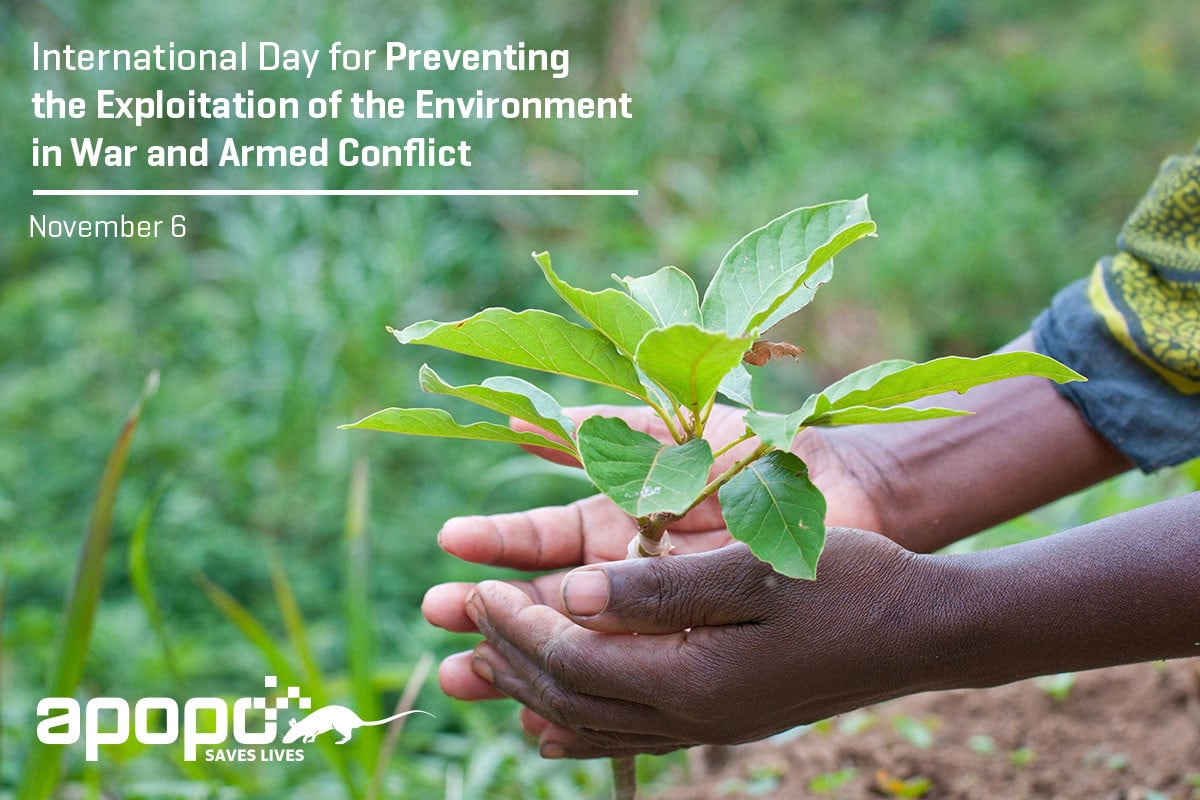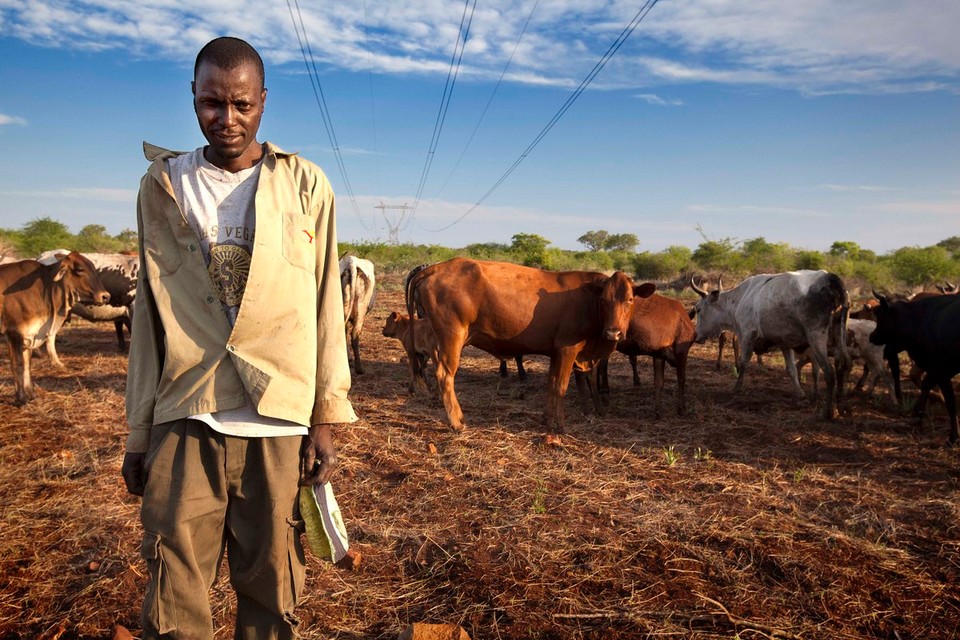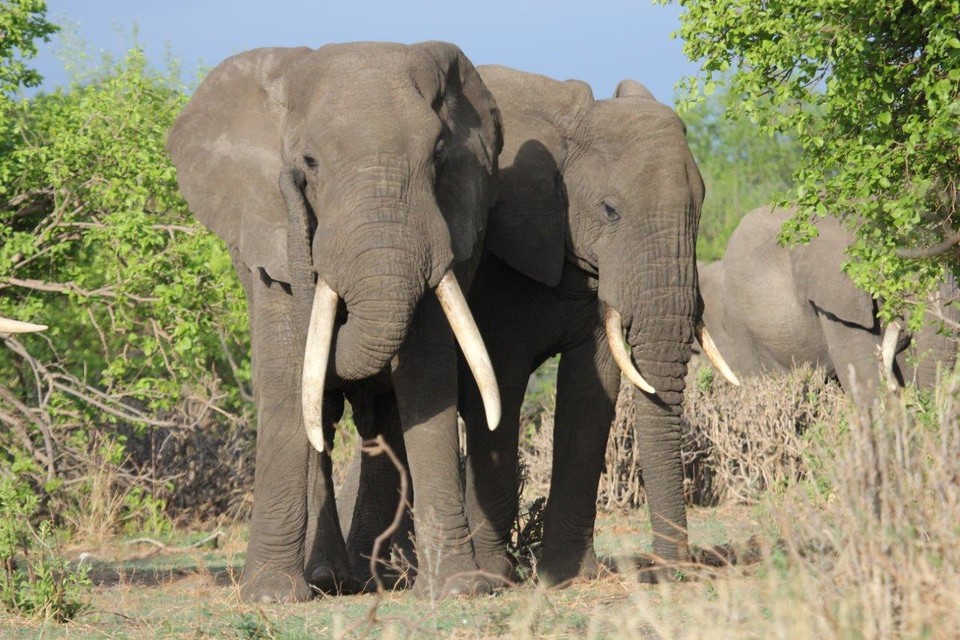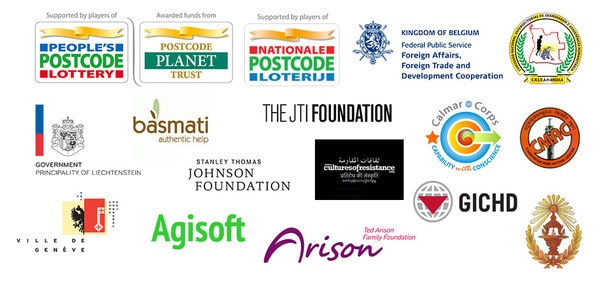
What APOPO does to tackle environmental exploitation from conflict.
In 2001, November 6th was declared by the UN as the International Day for Preventing the Exploitation of the Environment in War and Armed Conflict. It is a day dedicated to raising awareness of the damaging impact that war and armed conflict has on the environment. APOPO’s clearance teams see first-hand how landmines and other explosive remnants of war (ERW) have tragic repercussions on already threatened ecosystems. The exploitation of the environment in war and armed conflict is also closely related to some of the UN Sustainable Development Goals.
Impact on livestock & wildlife
Hidden in the ground, landmines kill and maim without distinction. Their victims are largely civilians but they also claim the limbs and lives of wildlife and livestock. For example, in Zimbabwe, there are casualties every year caused by landmines that were buried more than 30 years ago. Wildlife cannot read ‘danger’ signposts and unknowingly surrounded by landmines, accidents inevitably occur. For elephants, buffaloes and lions, this means the loss of a limb followed by a slow, painful death; smaller animals die instantly. There are also casualties of livestock, which is a double tragedy as herders already suffer from harsh conditions in landmine-affected countries as well as local communities who desperately need the land for grazing and agriculture.

Landmines create a barrier for natural wildlife migration routes and confining them will have a long-term impact on the gene pool of species like the African Elephant, as well as putting a strain on their habitat and resources. Under such circumstances, the wildlife population cannot thrive and their natural habitats are damaged.

By removing landmines and clearing minefields APOPO and the HeroRATs not only save people’s lives and release them from a constant source of ongoing fear and anxiety, but also decrease the number of accidents involving animals and help enable the preservation of habitats. (SDG 15: Life on Land & SDG 16: Promote just, peaceful and inclusive societies)
Impact on the environment
Landmines and other leftover explosives act as a barrier to communities from basic needs such as sources of water and safe, fertile agricultural land that is crucial for growing crops and grazing livestock. These restrictions increase the deterioration of the environment as people have no choice but to over-exploit the remaining natural resources. Releasing land for the local population reduces the pressure on forests and protected areas for biodiversity.
In addition, degrading explosives are damaging flora and threatening entire ecosystems as they release toxic substances in the soil and water. By using detection animals to find landmines, APOPO does not use ground penetrating flails, which minimizes soil disturbance and preserves soil quality. (SDG 15: Life on Land)
APOPO, in partnership with a local organisation in Tanzania, is helping to mitigate climate change by planting trees that are storing carbon and releasing oxygen into the air. The trees filter and clean the air we breathe and help prevent water pollution. The Intergovernmental Panel on Climate Change noted that reforestation and ecosystem restoration are currently the only truly effective means of reducing greenhouse gas emissions already in the atmosphere. (SDG 13: Climate Action & SDG 17: Partnerships for the Goals)
APOPO Mine Action is grateful for the support and generous contributions of all its partners and donors.





